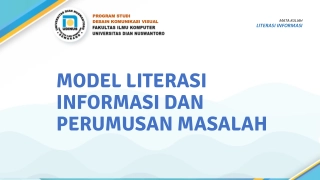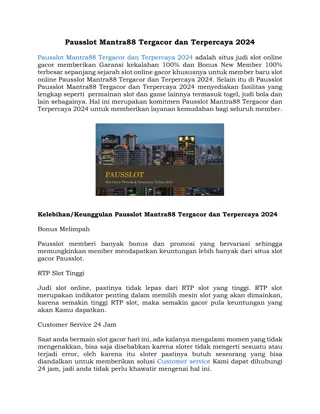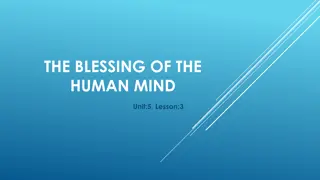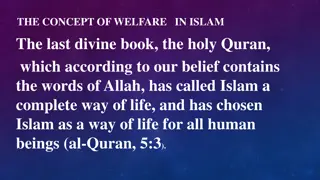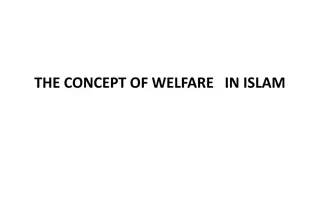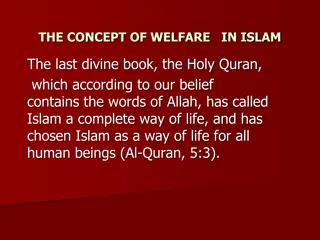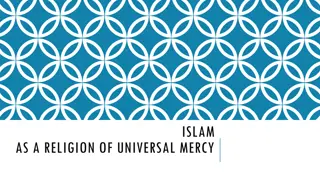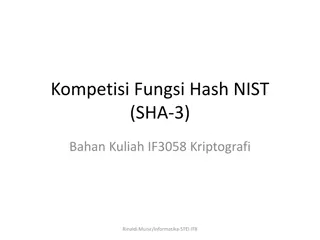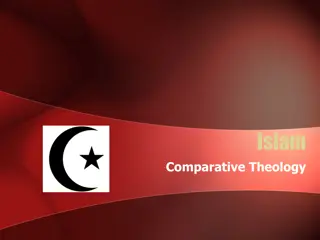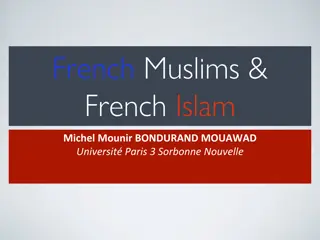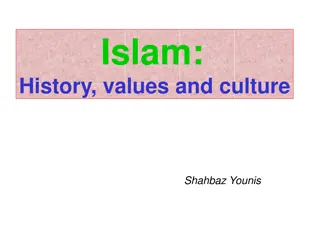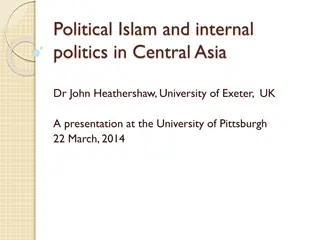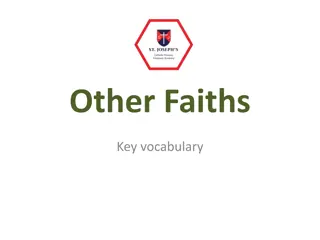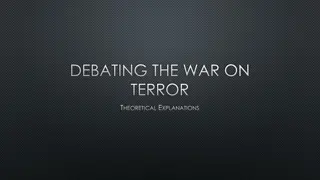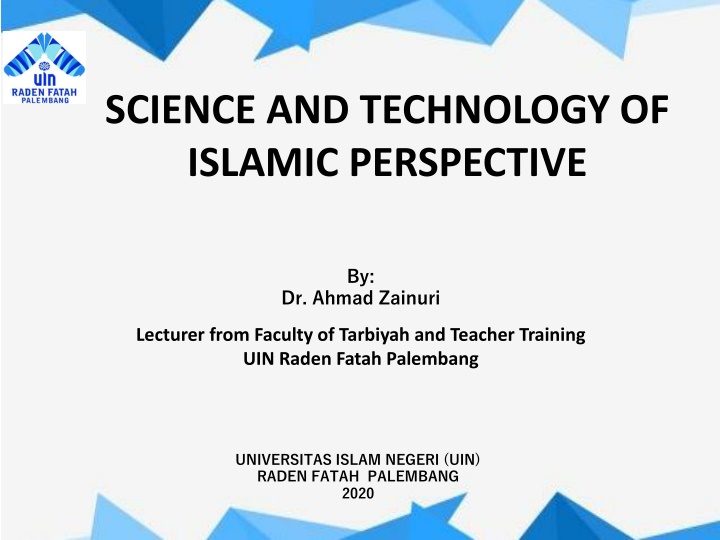
Science and Technology from an Islamic Perspective
Explore the dichotomy between modern science and Islamic science, the integration attempts, and the human nature and potential within Islamic teachings. Discover the paradigm of modern science and technology in the context of specific values and civilizations, along with the importance of integrating modern science with Islamic education.
Download Presentation

Please find below an Image/Link to download the presentation.
The content on the website is provided AS IS for your information and personal use only. It may not be sold, licensed, or shared on other websites without obtaining consent from the author. If you encounter any issues during the download, it is possible that the publisher has removed the file from their server.
You are allowed to download the files provided on this website for personal or commercial use, subject to the condition that they are used lawfully. All files are the property of their respective owners.
The content on the website is provided AS IS for your information and personal use only. It may not be sold, licensed, or shared on other websites without obtaining consent from the author.
E N D
Presentation Transcript
SCIENCE AND TECHNOLOGY OF ISLAMIC PERSPECTIVE By: Dr. Ahmad Zainuri Lecturer from Faculty of Tarbiyah and Teacher Training UIN Raden Fatah Palembang UNIVERSITAS ISLAM NEGERI (UIN) RADEN FATAHPALEMBANG 2020
The dichotomy debate - modern science and Islamic science - is still a crucial problem among Muslim scholars science is understood as science based on revelation, the hadith of the Prophet, and the scholars' ijtihad. Meanwhile, modern science is science based on experimentation and human reasoning based on empirical data through research. The two sciences have their respective areas, separate from one another, both in terms of formal- material objects, research methods, criteria of truth, and their roles. today. Islamic INTRODUCTION There is an idea among Muslim scientists to integrate the two sciences through the Islamization of science or the integration of science to neutralize the influence of modern Western science. This idea was initiated by Syed Muhammad Naquib al- Attas and Isma'il Raj'i al-Faruqi.
Human Nature: al- qalb, al-ruh, nafs, dan al- aql Human Potential: the potential (religious fitrah), mind, heart (qalb), and body al- NATURE AND HUMAN POTENTIAL of tauhid
The paradigm is value-free Modern born and developed in the context of specific values, civilizations The philosophical Modern Science-technology is the ideology of liberalism-capitalism and secular-materialistic materialism modern science-technology science-technologies are PARADIGMA SAINS TEKNOLOGI MODERN paradigms and paradigm of
Melahirkan manusia yang tidak memiliki pribadi terpecah (split personality) dalam masyarakat The position of al-Qur'an and hadith as a grand theory for modern science-technology The technology in Islamic teachings should be following the essential conception of man as the subject and object of Islamic education. As the most glorious and best creatures of Allah SWT, humans have been equipped with various potentials. Humans have multiple potentials, including the potential for tawhid (religious fitrah), reason, heart (qalb), and body. principle of integrating modern science- Science-Technology and Islamic Education: The Importance of Scientific Paradigm Integration The main objective of Islamic education must be in line with the goal of human creation, namely as the caliph of Allah on earth to carry out Allah's laws legally and prosper the universe. Create people who do not have a split personality in society
1. Pada hakikatnya manusia terbentuk dari rangkaian dua substansi, yaitu; komponen material; jasmani yang berasal dari intisari tanah, dan komponen immaterial; ruh yang di- tiup -kan Allah Swt dan hakikat manusia adalah ruh sebagai jadi dirinya. Manusia telah diperlengkapi dengan seperangkat potensi, yakni; potensi tauhid (fitrah beragama), akal, hati (qalb), dan jasmani. Selain potensi positif ini, dalam diri manusia juga terdapat potensi negatif yang merupakan kelemahan manusia, seperti potensi untuk terjerumus dalam godaan hawa nafsu dan setan. Karena itu, manusia dikatakan sebagai makhluk paradoksal, yakni memiliki kecenderungan ke arah kebaikan dan keburukan sekaligus. KESIMPULAN 2. Tujuan penciptaan manusia adalah menjadi khalifah Allah Swt di muka bumi. Agar selaras dengan tujuan pencipataan manusia itu hendaknya konsep sains- teknologi modern tidak dikhotomis agar manusia tidak memiliki pribadi terpecah (split personality) dalam masyarakat. Menyadari kenyataan itu, perlu adanya integrasi sains-teknologi modern dengan nilai-nilai ajaran Islam.

